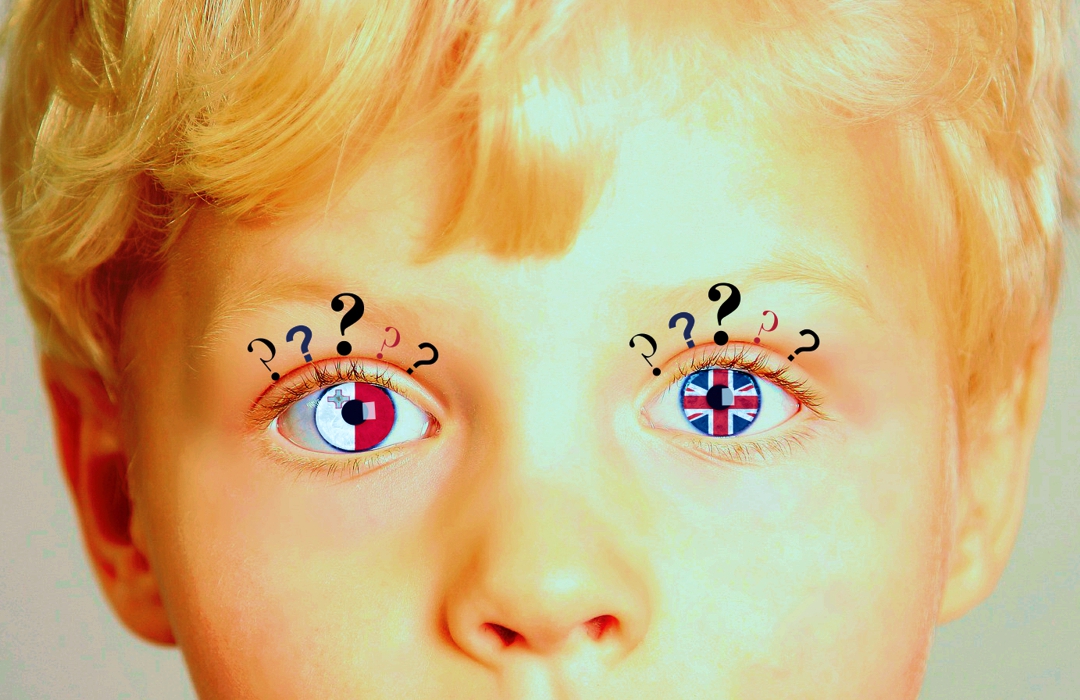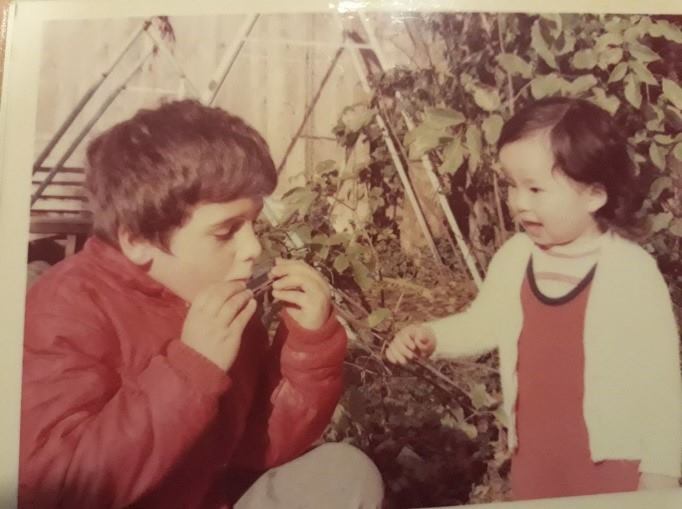
Upon returning to Malta after a year in Oxford as a five-year-old, I had to face the challenges of integration all over again; made worse by the fact that I had completely forgotten Maltese and my parents were living in Sliema. This seemed to be a world away from my memories of Paola and Malta’s “Deep South.”
by David Edward Zammit
Collage by the IotL Magazine
[dropcap]O[/dropcap]ver the past few years I have felt compelled to scour the internet in search of references to Malta and the Maltese in British nineteenth century literature. This search has deep personal roots in my experiences over forty years ago. As a five-year-old, I was transplanted for a year or so from the village of Paola, where my parents had started to raise me up as an ordinary Maltese speaking toddler, to Oxford in the UK. There I attended Wolvercote primary school while dad worked on his PhD and mum worked as a pharmacist’s assistant.
In 1975 and 1976, we lived in a culturally diverse block of apartments, called Summertown House, on Banbury road; sharing the block with other student families from a range of national backgrounds. Irish, Japanese, Israeli, Swedish and Indian children stand out in my recollection of the common playground. Although this was a relatively short period, it was a personal watershed; mainly because my experiences forced me to switch from being a Maltese to an English speaker and to develop an interest in reading. Both characteristics have stayed with me until the present.
Alien in England
My initial British experiences were of a deep isolation from my English-speaking classmates and teachers. I remember constantly shouting in the playing fields and at school; trying to reach out and make myself understood. I was not very popular. “It’s that Maltese kid again,” my mother overheard an English matron saying, “he needs to be squashed.”
The experience of being marginalised and bullied left deep impressions; memories which persist just below the surface of my waking life. Thus I remember silently approaching an English kid during the school break–—I had realised at this point that shouting was counter-productive—my short-lived happiness at the way he seemed to be accepting my presence and the crushing sense of disappointment when he turned his head, looked me squarely in the eyes and told me to: “buzz off”. And I can still feel the ache all over my body after a group of children at school got together and threw me on a bed of nettles.
The experience of being marginalised and bullied left deep impressions; memories which persist just below the surface of my waking life.
In narrating these memories, I do not want to give the impression that this was a period of constant bullying and harassment.
I remember various fun excursions and also my satisfaction that I was attending a school where each pupil was given access to a separate locker which contained the work we needed to do for the day; at the way we were trusted to do it at our own pace and at the few formal lessons. Still, a sense of isolation inflected every experience and this intensified after I decided not to tell my parents anything about any negative experiences at school. I had already begun to internalise the values of my English class-mates; sensing that they reserved nothing but scorn for tell-tales. I was also beginning to be aware of a deep religious gulf separating me as a Catholic from the culturally Protestant British; silently reducing my enjoyment of the fireworks we let off for Guy Fawkes Day.
At home I was loved and supported. My parents organised a birthday party for me, inviting the neighbours’ children and my dad became a hero forever in my eyes when he confronted a Swedish teenager who was my main playground bully. He and I visited her family’s flat and when she opened the door for us, he asked to see her parents. When she said they were not there, he warned her: “keep your hands off my son, otherwise there will be grave consequences!” Mum, for her part, realising that I needed help to learn English, dedicated every afternoon to reading with me.

By the end of our stay I had mastered English sufficiently to read books on my own and I developed into an avid reader. In the playground of our apartment block the Swedish girl was nowhere to be seen and there was a period in which I was actually calling the shots. At school I had learned and started to deploy the English language, accent and manners as a means of empowerment. When we took our class photos, I remember thinking I could now afford to smile, but then feeling angry when the other children laughed at the defiant, open-mouthed grin which emerged.
Why wouldn’t they accept me as their class-mate once I had mastered all the nuances of their language? However it seemed only a matter of time before I would fully integrate into a world of Britishness mapped out by Enid Blyton and comprising adventure, train journeys, ginger beer, moorland camping and modern science… finally allowing me to close the gap between the “world on paper” and my personal experiences.
Alien in Malta
In the real world, however, the passing of time brought my parents and me back to Malta. Now I had to face the challenges of integration all over again; made worse by the fact that I had completely forgotten Maltese and my parents were living in Sliema, in the “North” of Malta. This seemed, to my childish imagination, to be a world away from my memories of Paola and our weekly visits to my beloved “Nanna Annie” in Bormla, in Malta’s “Deep South.”
For a few days my parents sent me to Saint Joseph’s School in Rabat and there I encountered a Maltese speaking scholastic culture which seemed completely alien. Instead of the grass covered lawns and trees of Wolvercote School, which now seemed to exist in an enchanted summer of freedom in my memory, there was a gloomy stone-built building with a shadowy classroom, belying the hot sun outside.
In despair I asked a kid if I could copy what he wrote: “Ayma hey!” (‘of course not’), he replied. Once more I experienced that viscerally sensed rejection, couched in a linguistic medium I could not penetrate!
I remember gazing in a dazed manner at the blackboard where the teacher was working out arcane mathematical operations with a piece of chalk. Hadn’t she heard about markers? And how come the other kids seemed to know what to do and why was each concentrating on writing these complicated sums on his copybook without even saying a word to one another? In despair I asked a kid if I could copy what he wrote: “Ayma hey!” (‘of course not’), he replied. Once more I experienced that viscerally sensed rejection, couched in a linguistic medium I could not penetrate!
I could recount various similar episodes; such as my discovery that speaking English well was only one of a set of barriers, including political affiliation and social background, through which the “real Slimizi” policed the boundaries of their community. In fact my first experience of displacement seemed to frame all my childhood experiences; setting me off on an endlessly repeated cycle of rejection, attempted integration and quasi-acceptance; after which it was time to move on.
These experiences have made it difficult for me to commit to a single homogenous identity and have also given me a strong sensitivity to the way in which individual identity is constructed by the gaze of the other. On the plus side, I feel completely at home in culturally diverse settings where one has to explain one’s background and biography from scratch to complete strangers. And this all helped to develop my subsequent interest in anthropology.

David Edward Zammit is Head of Department of Civil Law at the University of Malta. His interests include Anthropology of Law, Tort Law, Law and Narrative, Administration of Justice, Anthropology of the Mediterranean.
![]()
This is an excerpt from an essay originally published in the catalogue of to be [defined], an artistic-anthropological exhibition, which forms part of RIMA project.
Leave a Reply